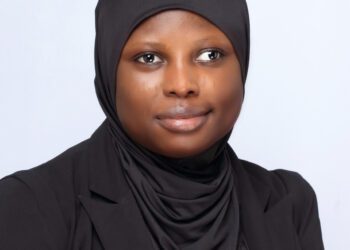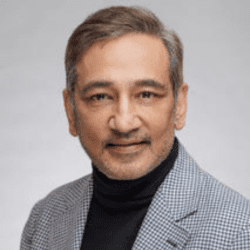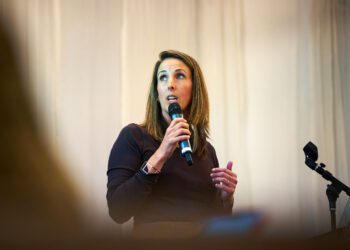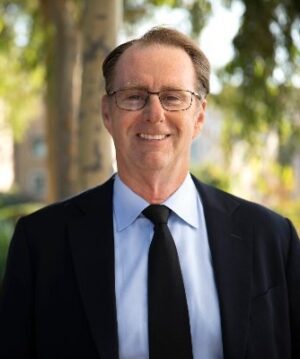
Bryan Penprase, a passionate advocate for global citizenship and inclusive education, currently serves as Vice President for Sponsored Research and External Academic Relations at Soka University of America. Penprase is also a Professor of Physics and Astronomy. He remains curious about how the universe intertwines – and combines this with his dedication to nurturing young minds. Moreover, Penprase’s scholarly contributions extend beyond the classroom. He recently wrote The New Global Universities: Reinventing Education in the 21st Century. This book serves as a testament to Penprase’s holistic approach to education. He explores how small liberal arts universities worldwide are embracing global citizenship as a cornerstone of their educational philosophy.
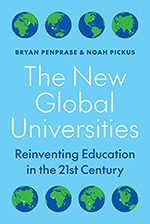
Currently, on sabbatical as a visiting scholar at Harvard University Graduate School of Education, Penprase delves into the future of higher education, envisioning a world where diverse voices collaborate to address global challenges and foster inclusivity. Recently, Penprase shared his insights with participants of the 2024 Aspire Leaders Program during a masterclass on global citizenship. Through engaging discussions on influential figures like Nelson Mandela and Diogenes, he highlighted the pivotal role of wisdom, courage, and compassion in shaping a brighter future. Following this session, Penprase graciously offered further insights into his journey, the significance of global collaboration, and his invaluable advice for young leaders.
Tell me more about your journey to your current career and your passion for teaching and experiential learning as well as the sciences.
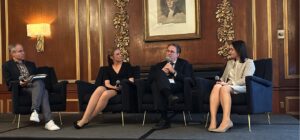
In my journey through the career, I was fueled by curiosity about the universe and in finding out the truths of what caused our universe to be what it is and what physical laws underlie the beauty and complexity of our world. As I began to work more in astronomy, the mysteries of our place in the universe, and the tiny and fragile nature of our shared planet, became more evident. Working globally with astronomers and other scientists, I realized how exciting it is to share interests and work together with like-minded colleagues around the world. This began my thinking about the global nature of science research.
As I continued to progress in my work as an educator, I realized that the process of developing a new college curriculum, developing the best kind of teaching, would also benefit from a global dialogue. This broadened my inquiry to include not only scientific truth – but deeper truths that are more complex and that are rooted in the human condition.
Liberal arts education can foster leadership in students that is rooted in a deep concern for our shared humanity that can promote global peace.
Through work at Yale-NUS College and Soka University of America, I learned how liberal arts education can foster leadership in students that is rooted in a deep concern for our shared humanity that can promote global peace – especially as students from around the world began to learn about each other and share about their cultures and their dreams for the future. All of this gave me my current outlook which is one that mixes a sense of our shared global heritage as citizens of a tiny planet – and one that requires us to work together to help preserve and improve our world.
Why did you choose to volunteer your time with Aspire and what do you love about teaching?
When I learned about Aspire from meeting with Tarun Khanna, I was very excited to see such an excellent program that can help inspire and connect young people around the world to dream and to build a better world. This naturally was something I wanted to help with – and it also aligned very well with the mission of my institution, Soka University of America, which is committed to fostering global citizenship in our students.
Why is it important to involve youth in global education planning for the future? What does the youth perspective bring?
Bringing the voice of youth into building a positive vision of the future that they will bring to us is vital.
The most urgent and important problems our planet and our countries face all have global dimensions. It is essential that we understand how deeply interconnected we are as a planet – not only economically but increasingly in terms of shared technologies, shared media, and shared global literature, music, film and other media instantly developing a more global culture. We can help shape that global culture through an awareness of what a better future looks like, and how we can work with those around us in our local regions and with those across the world to be sure the world is moving toward a more sustainable and equitable future. Bringing the voice of youth into building a positive vision of the future that they will bring to us is vital.
What were some of your favorite parts and main takeaways from the masterclass with current Aspire Leaders Program Participants?
I loved the questions! [They] were very thoughtful and were able to connect to the ideas of global citizenship to a local level as well as through larger scale initiatives. The idea of being present and open to others and their differences is a really powerful concept that is at the heart of a mindset of global citizenship. As Daisaku Ikeda put it, we need to have “the courage not to fear or deny difference but to respect and strive to understand people of different cultures and to grow from encounters with them.” When we are aware of the presence of distinct cultures within our own society and even differences in our own city, we can broaden this idea to operate in a local context as well as a global context.
What is your advice for young leaders?
I urge young leaders to preserve their passion for justice and for truth, but also to temper it with their life experience into a form of wisdom rooted in the shared humanity of all people. By being open to all others, and by taking the time to listen, we also can always learn. It is especially important to season the passion of a young leader with a bit of humility. Humility in the form that says we do not know everything and that we can always learn more and that every person brings something to us that we can learn from.


